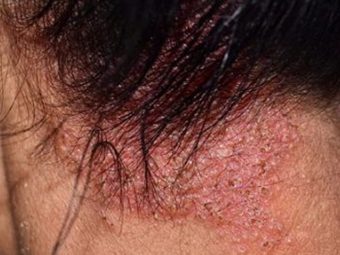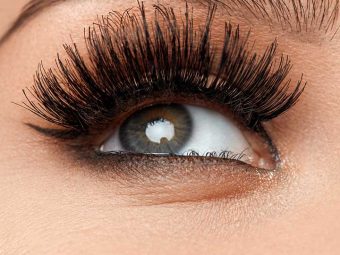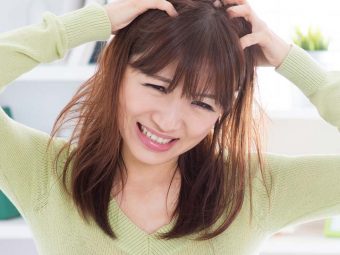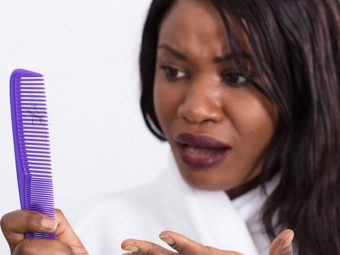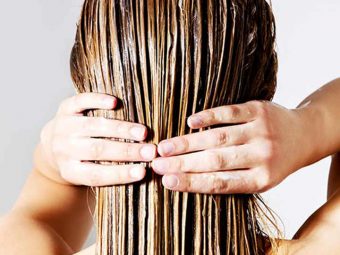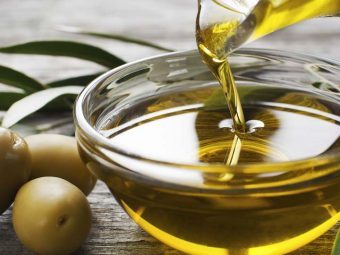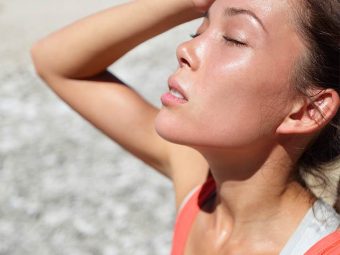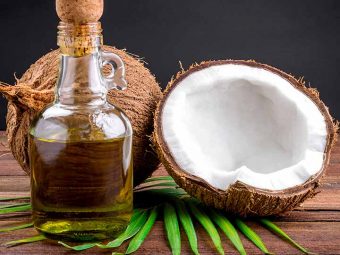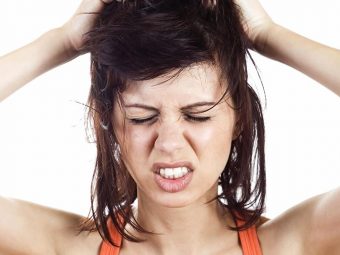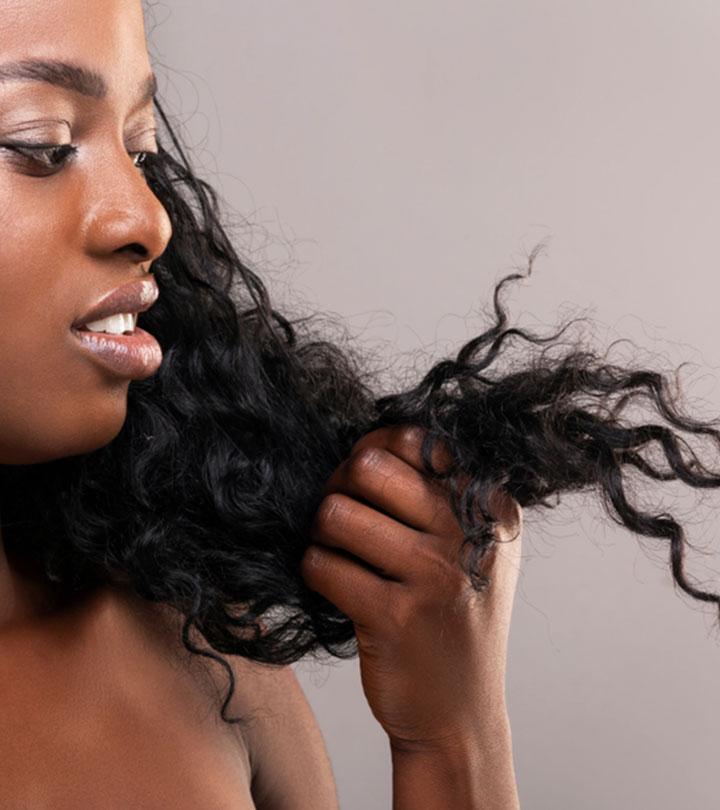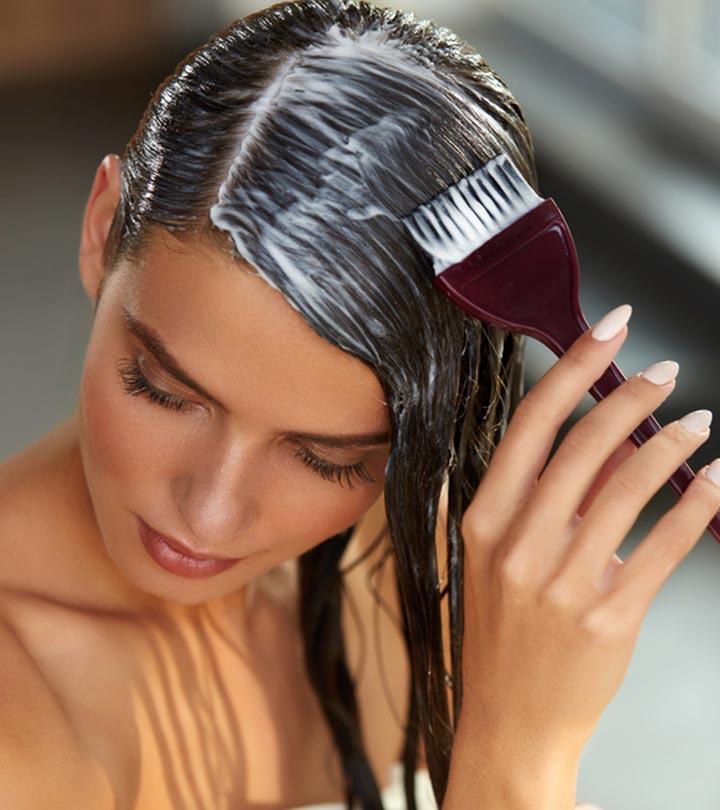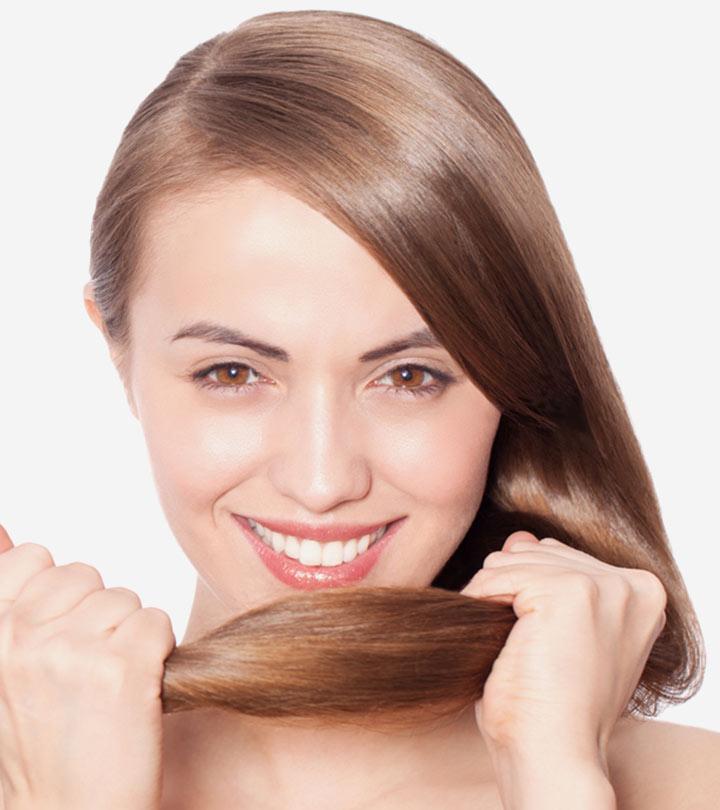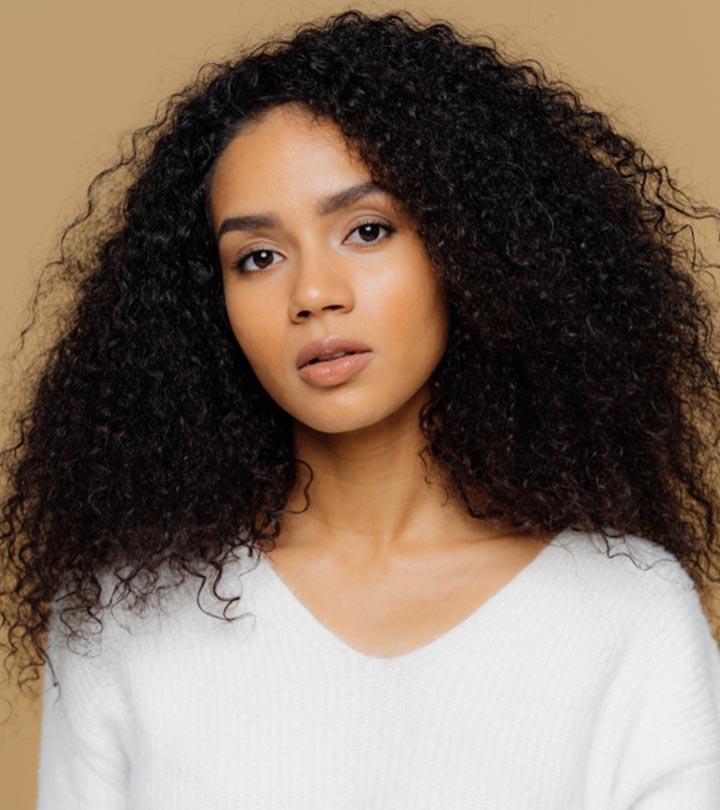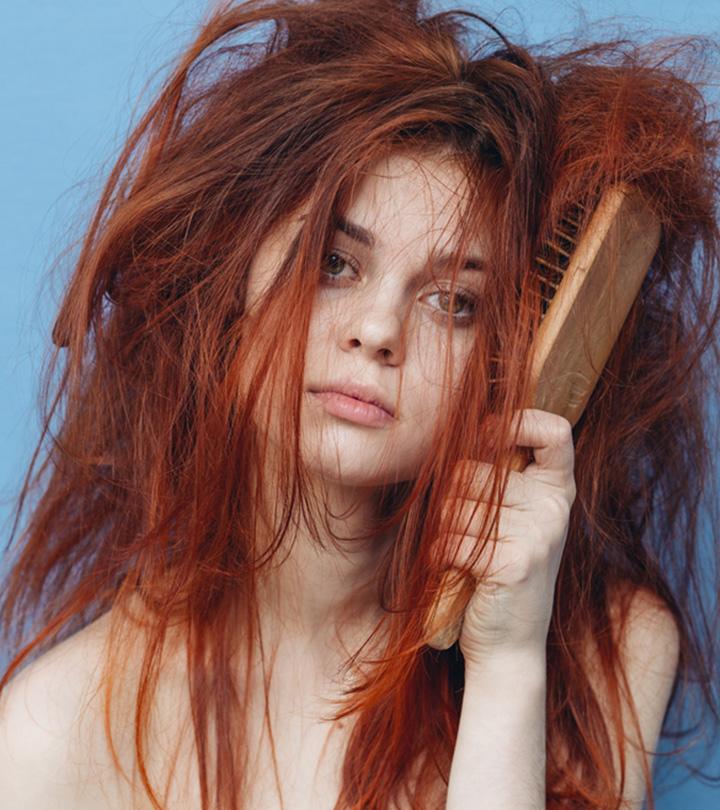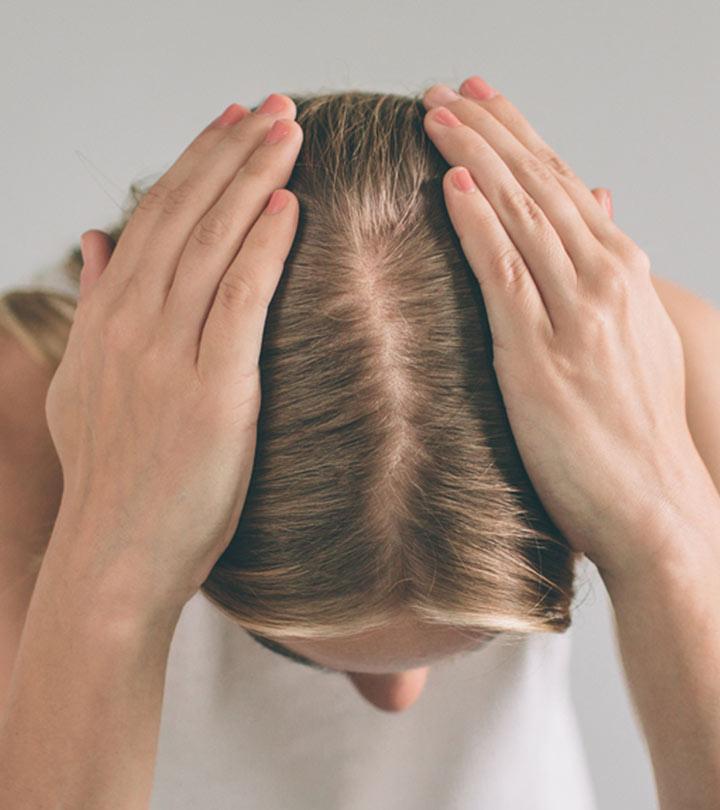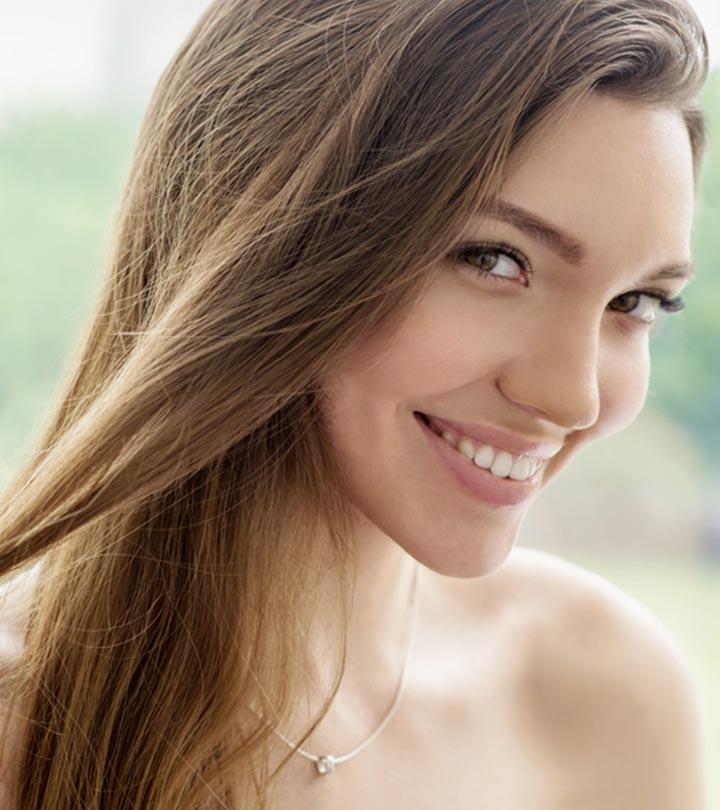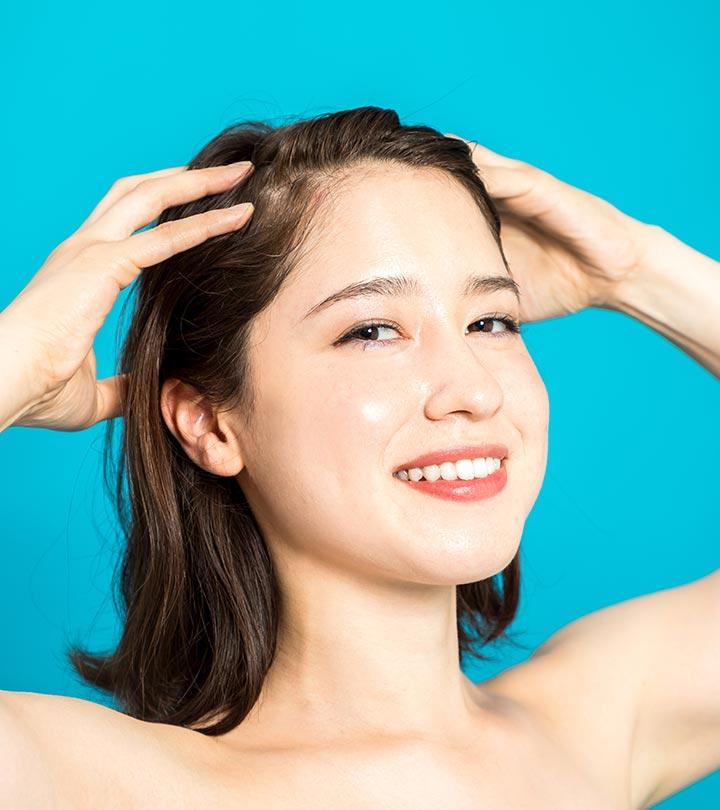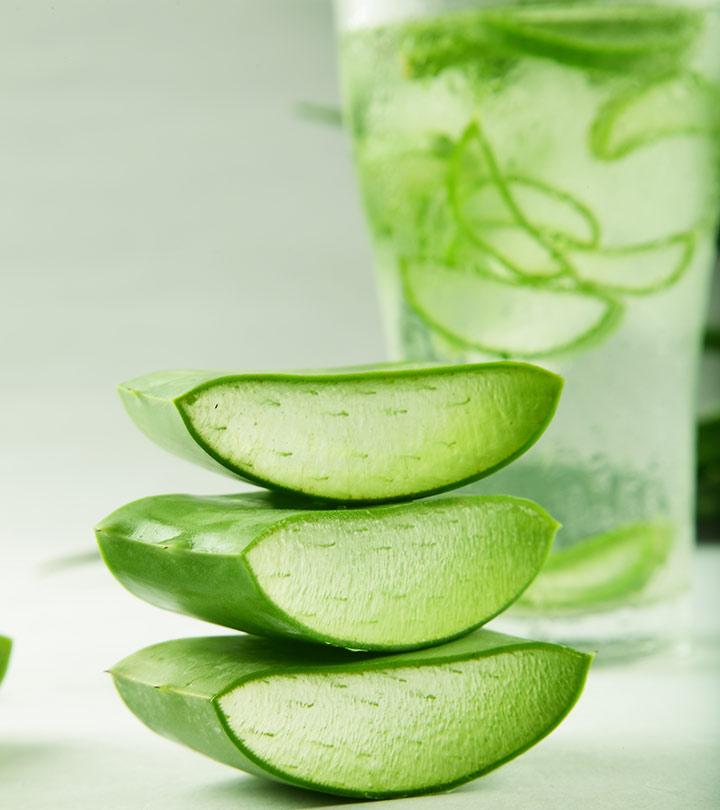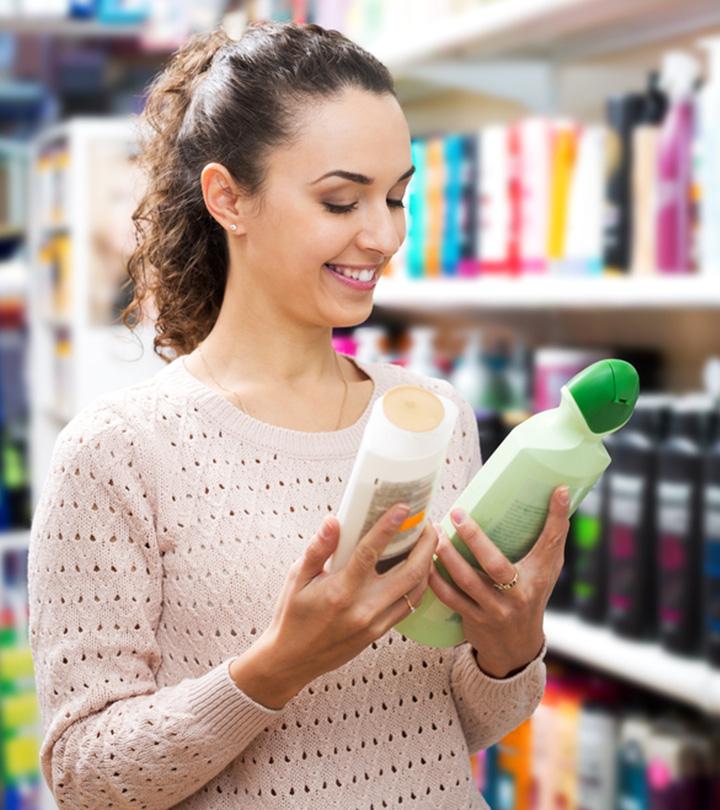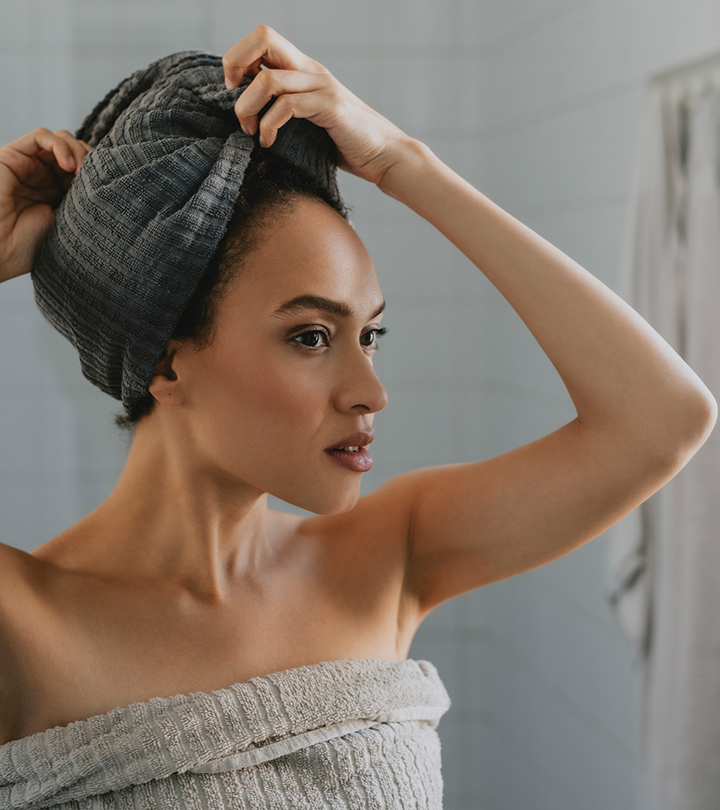2 Home Remedies For Dandruff In Kids, Symptoms, & Treatment
Help your child get relief from an itchy scalp with simple at-home treatments.
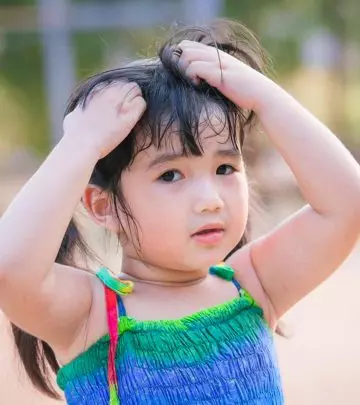
Image: Shutterstock
Dandruff in kids is a common issue, mostly because children have a much active lifestyle and spend a lot of time outdoors. This makes them vulnerable to dust-related skin issues and dandruff.
Dandruff is also known as seborrheic dermatitis. When it affects the infants, it is called cradle cap. If your kid has dandruff, do not worry. You can manage it with the right treatment. There could be multiple factors leading to dandruff in kids, and knowing them helps you determine the right way to manage the condition. Read on to know the causes behind dandruff and how to manage it.
In This Article
Identifying The Causes Of Dandruff In Children
Multiple factors may cause dry scalp and dandruff in children. These are:
1. Unbalanced Diet
The deficiency of nutrients like zinc, niacin, riboflavin, and pyridoxine may trigger conditions similar to seborrheic dermatitis. However, the mechanism is yet unknown (1). Many kids are picky eaters and prefer unhealthy junk food over a balanced diet. Such unbalanced diets may cause nutritional deficiencies and dandruff.
2. Sensitivity To Shampoos And Conditioners
Several ingredients in shampoos and conditioners may sensitize the scalp, causing dryness, itching, flaking, and dandruff-like symptoms. To avoid this, use pediatrician-recommended hair care products for your child.
3. Malassezia
Malassezia, a yeast-like fungus, can trigger dandruff. The two strains, M. globosa and M. restricta, cause dandruff. However, Malassezia is commonly found in oily skin (2). It can cause dandruff in growing children who have reached puberty and are experiencing hormonal changes.
4. Improper Shampooing
Improper washing and post-shampoo rinsing techniques may cause product buildup. Dust and dirt accumulation can aggravate the condition and cause scalp dryness, itching, and flaking.
 Quick Tip
Quick Tip5. Eczema
Seborrheic eczema is a condition that causes itchy, red, and scaly patches and dandruff. This condition affects the scalp and any area that produces oils and may trigger dandruff in children. Dandruff is common during puberty. Read on to know more.
6. Cradle Cap
Cradle cap is a type of seborrheic dermatitis in kids. This condition causes flakiness, crusty, and oily patches on the kids scalp and causes itchiness and discomfort.
Puberty And Dandruff
Dandruff is a common occurrence during puberty that begins at any age between 8 and 14 years. During this period, hormonal changes may trigger excess sebum production. Malassezia feeds on the skin lipids (3). This leads to dandruff.
Read on to know about the signs and symptoms of dandruff in children.
Signs And Symptoms Of Dandruff In Children
The most identifiable signs and symptoms of dandruff in children are:
- Visible white flakes on the scalp and clothing
- Constant itching
- Red and inflamed patches on the scalp
If you see any or all of the symptoms on your kid’s scalp, consult a pediatrician and start treatment immediately, as untreated dandruff may affect the scalp health.
Harmful Effects Of Dandruff On Child’s Scalp
Untreated dandruff may lead to constant itching and scratching and can:
- Injure the scalp skin
- Cause redness
- Injure the hair follicles and cause hair loss
- Other bacterial infection (due to itching and scratching)
Early treatment can minimize the chances of major scalp issues in children. The following sections discuss medication and natural remedies to treat dandruff in children.
Treatment For Dandruff In Children
Use Medicated Shampoos
Medicated anti-dandruff shampoos contain antifungal ingredients (like ketoconazole) to relieve dry and itchy scalp and Malassezia growth. However, consult a pediatrician for product recommendations as per the kid’s age and severity of dandruff.
You may also go for natural home remedies to manage dandruff and keep the scalp healthy.
Home Remedies To Treat Dandruff In Kids
1. Fenugreek Extracts
Fenugreek leaf extracts can prevent Malassezia growth and minimize dandruff and other fungal infections (4). Grind fenugreek leaves into a paste and massage it onto your child’s scalp. Leave it on for 15-30 minutes and then wash off.
2. Yogurt
Oral intake of probiotics can improve the skin barrier function and reduce dandruff (5).
3. Tea Tree Oil
The antibacterial and antifungal properties of tea tree oil make it an easy natural remedy for dandruff. Dilute a few drops in carrier oil like jojoba or coconut and massage into the scalp for 10 minutes before rinsing (6).
4. Apple Cider Vinegar
Apple cider vinegar (ACV) is a popular natural remedy for dandruff. It helps loosen dead skin cells and reduce scalp itchiness. The acidic properties help balance the pH of the scalp and combat dandruff. Mix equal parts of ACV and water and apply the solution to the scalp after shampooing. Rinsing thoroughly after a few minutes (7).
5. Baking Soda
Anecdotal evidence suggests that due to their antifungal properties, baking soda may contribute to being an effective remedy for dandruff. Mix two tablespoons with your regular shampoo and massage into the scalp for a few minutes before rinsing. Avoid using baking soda too frequently, as it can dry the scalp.
 Pro Tip
Pro TipConfused about when to reach out to a doctor for treatment? Keep reading for clarity!
Reaching Out To A Doctor
It is better to visit a doctor if:
- The kid has rashes on other body parts in addition to dandruff.
- Anti-dandruff shampoos do not yield any results for several weeks.
- The scalp has turned red due to continuous scratching.
- The child has a weak immune system.
Dandruff is a common issue in children, but it is not a serious problem if treated correctly. If you notice flakiness on your kid’s scalp, consult a pediatrician immediately. Timely detection is crucial as the kid may feel discomfort and itchiness and may unknowingly scratch their scalp and aggravate the issue. You may also follow the tips discussed in the article for soothing the scalp. Also, ensure proper scalp hygiene and use medication and products recommended by the doctor to maintain your kid’s scalp health.
Frequently Asked Questions
Can dandruff go away on its own?
Dandruff is not curable but can be controlled. It usually doesn’t subside on its own. This chronic scalp condition can go away and come back at some point in time. Hence, regular treatment is necessary.
Key Takeaways
- Unbalanced diet, sensitivity to shampoos and conditioners, malassezia, improper shampooing, eczema, and cradle cap are the causes of dandruff in children.
- The symptoms of dandruff in children can be visible white flakes on the scalp and clothing, constant itching, red and inflamed patches on the scalp.
- Fenugreek extracts and yogurt can treat dandruff among children. But consult a doctor if the case is severe.
Discover effective ways to control dandruff in children with this insightful video, which will help you understand the basic causes behind this condition. It also offers practical tips to help you make an informed decision to help resolve the condition.
Personal Experience: Source
(i) How to treat cradle cap
https://www.youtube.com/watch?v=USCIKhQ42u8
References
Articles on StyleCraze are backed by verified information from peer-reviewed and academic research papers, reputed organizations, research institutions, and medical associations to ensure accuracy and relevance. Read our editorial policy to learn more.
- Seborrheic Dermatitis and Dandruff: A Comprehensive Review
https://www.ncbi.nlm.nih.gov/pmc/articles/PMC4852869/ - Association of Malassezia species with dandruff
https://www.ncbi.nlm.nih.gov/pmc/articles/PMC4069738/ - Dandruff: The Most Commerically Exploited skin Disease
https://www.ncbi.nlm.nih.gov/pmc/articles/PMC2887514/ - Fenugreek Leaf Extract and Its Gel Formulation Show Activity Against Malassezia furfur
https://pubmed.ncbi.nlm.nih.gov/31524496/ - Session J: Itching and Seborrheic Dermatitis
https://www.ncbi.nlm.nih.gov/pmc/articles/PMC3171853/ - Treatment of dandruff with 5% tea tree oil shampoo
https://www.sciencedirect.com/science/article/abs/pii/S0190962202003134 - Preparation and Optimization of Garlic Oil/Apple Cider Vinegar Nanoemulsion Loaded with Minoxidil to Treat Alopecia
https://www.ncbi.nlm.nih.gov/pmc/articles/PMC8706394/#B23-pharmaceutics-13-02150





